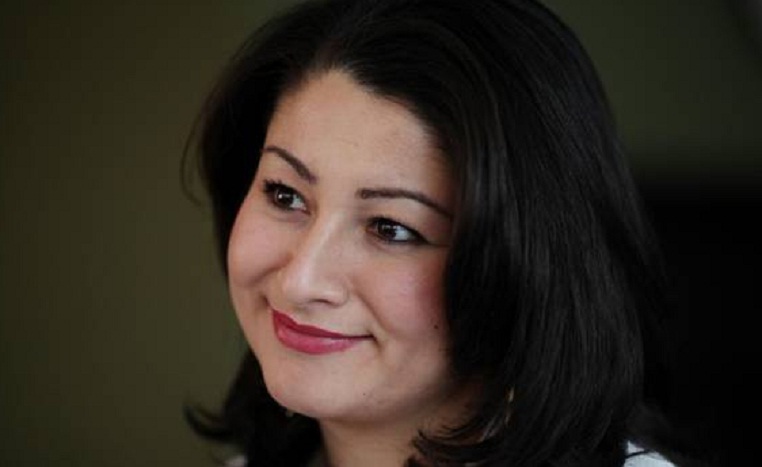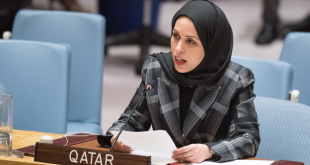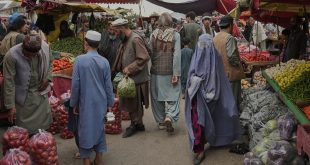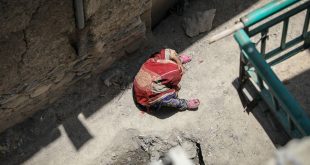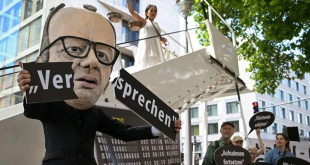As the Liberals work to fulfill an ambitious pledge to resettle 25,000 Syrian refugees in just a few months, there’s one member of the Trudeau cabinet who knows more about the experience than most.
Maryam Monsef, the woman who is tasked with creating a fairer way to elect a federal government in Canada, arrived in this country from Afghanistan at the age of 11 with her widowed mother and two sisters. Nineteen years after landing in Montreal as a refugee, she is the Minister of Democratic Institutions and the fourth-youngest member of cabinet in Canadian history.
“You’re born into a culture, nurtured into those memories. And part of me will always be shaped by my roots. The perspective I bring to tables here, or the House of Commons, or the cabinet, is always going to be shaped by that first third of my life and of my heritage,” Ms. Monsef said during an interview in a boardroom on the nearly empty floor of an Ottawa office building that will eventually house her staff.
“But I am from Peterborough-Kawartha. I have spent two-thirds of my life in Peterborough-Kawartha, and I have been educated there,” she said. “The challenges that I experienced are shared by the people of my riding and Canadians. The hopes and ambitions and dreams that I had for me and for my kids and for my grandkids, they are shared by people from all walks of life.”
The job of resettling so many people, from half a world away, in such a short period of time, is enormous. But Ms. Monsef is undaunted, even after the attacks in Paris last month fuelled criticisms that the new Liberal government could open the door to terrorists by acting with such haste.
“Like most people around the world, I am devastated by what happened in Paris,” she tells a reporter. “As far as our commitment for settling 25,000 Syrian refugees goes, Canadians knew from the beginning that this government took security very seriously. We took it seriously before the incidents in Paris and we’re taking it seriously now.”
Ms. Monsef is a member of the nine-member cabinet committee that is supervising the influx of Syrian refugees. But her main responsibility will be overhauling Canada’s democratic system.
Despite the improbability of her story – a girl from a place where girls are not especially valued, someone who is more familiar with student debt than national debt, being asked to sit at the cabinet table – those who know her say she is the right person for the job.
“She is a very intelligent individual,” said former Liberal cabinet minister Andy Mitchell, who managed her election campaign. “She listens intently, she digests what people have to say, she’s thoughtful about the input she’s received and she replies or incorporates that into her thinking.”
In Afghanistan, Ms. Monsef’s family was progressive in its treatment of its female members. Ms. Monsef’s mother had hoped to become a doctor. But that dream was cut short by the Soviet invasion and the death of her husband, Ms. Monsef’s father, who got caught in the middle of a gun battle at the border of Afghanistan and Iran.
“Women in Afghanistan without a male head of the family didn’t have much status in society,” said Ms. Monsef. “Earning a dignified living really became a challenge. And there was the fact that there was war and it wasn’t safe.”
So the fatherless family moved to Iran to live with relatives, and then spent the next few years travelling back and forth between the two countries. Had her life played out like those of most Afghan girls of similar social status, Ms. Monsef would have been married at a young age to a man who could provide for her.
But Ms. Monsef’s mother wanted more for her daughters. “She wanted us to get an education and to be able to stand on our own two feet. And she wanted us – and so did my father – to give back to society in a meaningful way.”
With a brother living in Peterborough, Ont., she also had a way to make that happen. The Monsef girls were told that Canada was the land of opportunity and the moment they got off the plane, their problems would be over.
Of course, that was not the case. There was a language barrier at school, a culture shock in the community and, more than anything, there was homesickness.
“I didn’t realize how much I would be affected by that,” she said.
That feeling of loss, she said, has helped her empathize with the parents and grandparents in her riding who watch younger generations leave for Toronto or Alberta because of a lack of economic opportunities. Being separated from loved ones, no matter where you live, said Ms. Monsef, is “probably one of the hardest things in the world.”
But there were also good things. In Afghanistan, girls are not permitted to leave their homes unescorted. In Canada, she learned how to ride a bike in two days.
“Peterborough in May is glorious, it’s beautiful,” said Ms. Monsef. “Here I am riding my bike outside in a beautiful country where I have my whole life ahead of me and it’s filled with possibilities.”
Gradually, the homesick Afghan refugee girl became a confident, outspoken Canadian woman. She realized this country was truly in her bones, she says, when she caught herself looking forward to winter.
Ms. Monsef enrolled at Trent University with the ambition of becoming a doctor – fulfilling her mother’s thwarted dream.
But “I realized that med school would take me away from the time that I could be spending applying the knowledge I was learning, so I ended up switching to psychology because I am fascinated by people and because I wanted to better understand myself so that I could understand others better,” she said.
Ms. Monsef started a mental-health advocacy group on campus called Active Minds that remains active today. And she initiated what is called the Red Pashmina Campaign to fund a maternity clinic in Afghanistan; it now supports educational projects for women in her home country.
Some of the funds have gone to a group called Canadian Women for Women in Afghanistan. Daphne Ingram, a member of the Peterborough chapter of that organization, said she has been more than impressed by her new MP’s persuasive skills.
“I would say she is thoughtful and very intelligent and she is also a great communicator,” said Ms. Ingram. “I think part of the problem with changing the electoral system is that you need to have someone who will persuade people that the new system will be better, and particularly young people. And I think she’s somebody who could do that.”
By her mid-20s, it had become clear to Ms. Monsef that a political career would be a good match for her interests and ambitions. For six years, she says, she was approached to run municipally, provincially and federally.
It was easy to make the political leap, she said, “when that many people believe in you, when that many people and more say ‘we’ll help you out, we’re behind you.’”
In 2014, she made a run for the job of Peterborough mayor and came within 1,500 votes of knocking off the incumbent.
Ms. Monsef then turned her eyes to federal politics.
Peterborough-Kawartha was, at that time, unrepresented in the House of Commons. Former Conservative MP Dean Del Mastro had resigned after being found guilty of violating Canada’s election laws.
She said she was approached by Liberals in the riding and won the party’s nomination. Then she won the seat. And then came the call from the Prime Minister asking her whether she would join his cabinet.
As Minister of Democratic Institutions, it is her responsibility to craft legislation within the next 18 months to move the country from a first-past-the-post voting system to something based on proportional representation. Like resettling 25,000 refugees, it was one of Mr. Trudeau’s campaign commitments, and one upon which Ms. Monsef must personally deliver.
Some experts say it can’t be done in in a year and a half – not with proper consultation.
When Canadians have voted on whether they want electoral reform at a provincial level, they have said No more than once. The Liberals are avoiding that potential roadblock by foregoing a referendum and, instead, relying on a national consultation process.
But the controversies and confrontations that lie ahead for Ms. Monsef are many. And the weight and scope of her job are large.
Still, since her appointment to cabinet, she has rarely been seen in public without a broad smile.
Mr. Trudeau has surrounded himself with “a diverse team of exceptional leaders from across the country,” she said. “That, for me, was a once-in-a-generation opportunity to be part of making this great country even better.”—(The Globe and Mail)
 Afghanistan Times
Afghanistan Times
